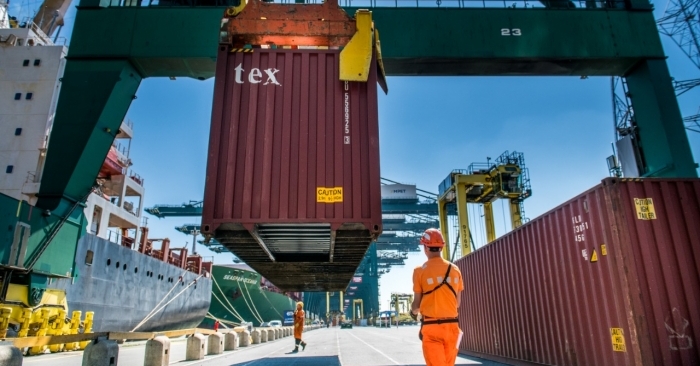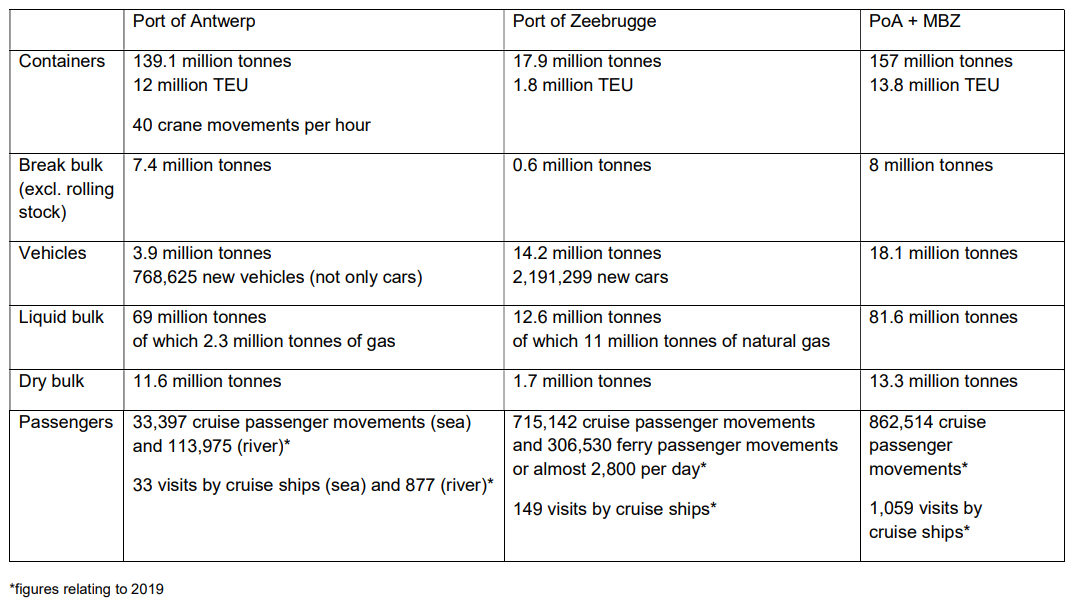Antwerp, Zeebrugge ports to merge; will have 278 mn tonnes capacity
February 15, 2021: The City of Antwerp and the City of Bruges in Belgium have reached an agreement to merge their respective ports which is expected to take a year to finalise and will operate under the name 'Port of Antwerp-Bruges'.

February 15, 2021: The City of Antwerp and the City of Bruges in Belgium have reached an agreement to merge their respective ports which is expected to take a year to finalise and will operate under the name 'Port of Antwerp-Bruges'.
"The merged port will become the most important container port (157 million tonnes/year), one of the largest breakbulk ports and the largest port for the throughput of vehicles in Europe, says the release.
Furthermore, the port will account for more than 15 percent of Europe's liquid natural gas transited and it will remain Europe's most important chemical hub. With a total throughput of 278 million tonnes per year, the unified port will be able to consolidate its leading position in the world.
As part of a joint plan, the two ports have defined three strategic priorities – sustainable growth, resilience and leadership in the energy and digital transition.
Annick De Ridder, port alderman and chair of the board of directors of the Antwerp Port Authority: "We are proud of this historic agreement, which seals a long-awaited unification. By joining forces, we are on the way to becoming Europe's global port, while at the same time reinforcing our position as the most important container port in terms of tonnage, a solid RoRo port and one of the largest break bulk ports in Europe. Our ambition to bring the two ports together is about much more than simply tonnage and TEUs, however. It will enable us to focus even more firmly on the transition towards a low-carbon economy and to continue our efforts regarding the digitalisation of the supply chain."
Dirk De fauw, mayor of Bruges and chair of Zeebrugge Port Authority, said, "We are looking forward to join forces with the port of Antwerp and, by doing so, to strengthen our position as the most important gateway to Europe. Zeebrugge is the world's largest automotive hub, a leading RoRo port and an experienced, state-of-the-art natural gas hub. By combining our own strengths with the qualities offered by Antwerp, we will be able to do more and do it better. We will achieve this in the interests of and in consideration of our shared port operations, our city and our region. We will strengthen our joint economic and international position, while simultaneously creating added value for society in general."

Port of Antwerp-Bruges will become the largest container port in Europe (in tonnage) and will take up 13th position (in terms of TEU) on the list of the world's major ports.
Sustainable growth, interconnectivity
Antwerp specialises in the handling and storage of containers, breakbulk and chemical products, while Zeebrugge is a major port for RoRo traffic, container handling and the transhipment of liquid natural gas. Working together will make it possible to consolidate sustainable growth, not only of each port's individual market share but also of the joint market share of both ports together.
In order to maximise the added value of a unified port, Port of Antwerp-Bruges will seek to develop and make optimum use of the interconnectivity between the two ports. The transportation of goods by rail between the two sites will be bundled, estuary traffic (by inland vessels on the North Sea) will be optimised and pipeline connections will also be on the list of priorities.
Energy, digital transition
Combining the industrial cluster in Antwerp and Zeebrugge's location on the coast will create an opportunity to address the future energy challenges in Flanders and the wider region. As such, Port of Antwerp-Bruges will take up a leading position as an import hub for green hydrogen and will play an active and pioneering role in the hydrogen economy. In addition, the port, in collaboration with its industrial and maritime customers, will continue its efforts to reduce its carbon footprint and will examine methods of applying CCUS (Carbon Capture, Utilisation & Storage) in order to contribute to the transition towards a low-carbon port.



